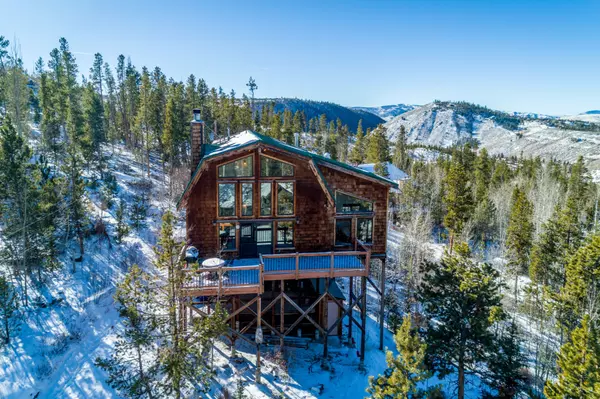The Future of Real Estate: Predicting Market Trends for the Next Decade

While it's challenging to predict the future of real estate with absolute certainty, several trends and factors can influence the market over the next decade. Here are some potential developments and trends that may shape the future of real estate:
-
Technology Integration:
- Continued integration of technology is expected to transform various aspects of real estate. Virtual reality (VR) and augmented reality (AR) may become more prevalent in property viewings and presentations. Additionally, blockchain technology could streamline transactions, enhance security, and simplify property records.
-
Smart Homes and Sustainable Living:
- The demand for smart homes equipped with advanced automation and energy-efficient features is likely to grow. Homebuyers are expected to prioritize properties with sustainable designs, eco-friendly features, and energy-efficient systems.
-
Remote Work Impact:
- The rise of remote work, accelerated by the COVID-19 pandemic, is expected to influence real estate preferences. Suburban and rural areas may see increased demand as people prioritize larger homes, outdoor spaces, and a quieter lifestyle.
-
Flexible Living Spaces:
- The concept of flexible living spaces is likely to gain prominence. Homes designed to accommodate remote work, multi-functional rooms, and adaptable layouts will appeal to individuals seeking versatile living arrangements.
-
Urban Renewal and Mixed-Use Developments:
- Urban areas may experience renewal as developers focus on mixed-use developments that integrate residential, commercial, and recreational spaces. This approach creates vibrant and walkable neighborhoods, catering to the preferences of urban dwellers.
-
Affordable Housing Solutions:
- The need for affordable housing solutions is expected to persist. Innovative approaches, such as modular construction, 3D printing, and community land trusts, may emerge to address the challenge of housing affordability.
-
Demographic Shifts:
- Demographic changes, including the aging population and the influence of millennials, will continue to impact the real estate market. The preferences of these demographic groups for downsizing, sustainable living, and unique experiences will shape housing trends.
-
Rise of Co-Living and Co-Working Spaces:
- Co-living and co-working spaces may become more prevalent as individuals seek shared living arrangements and flexible work environments. These communal spaces offer social interaction, cost savings, and a sense of community.
-
Renewable Energy Integration:
- The integration of renewable energy sources into residential and commercial properties is likely to increase. Solar panels, energy-efficient systems, and sustainable construction practices may become standard features in real estate developments.
-
Economic and Regulatory Factors:
- Economic conditions, interest rates, and regulatory changes will play a significant role in shaping the real estate market. Government policies related to housing, infrastructure, and economic stimulus can impact property values and market dynamics.
-
Health and Wellness in Design:
- Design trends may prioritize health and wellness, especially in response to global health concerns. Features such as air purification systems, touchless technology, and spaces that promote physical and mental well-being could become more prevalent.
-
Data Analytics and Predictive Modeling:
- The use of data analytics and predictive modeling in real estate is expected to expand. These tools can help investors, developers, and real estate professionals make more informed decisions about market trends, property values, and investment opportunities.
-
Short-Term Rental Market Evolution:
- The short-term rental market may evolve with changing travel trends and regulations. The popularity of vacation rentals and alternative accommodations could continue to grow, influenced by factors such as remote work and increased mobility.
-
Crisis Resilience and Design Adaptations:
- Real estate developers and architects may place greater emphasis on crisis resilience and adaptability in property design. This includes considerations for climate-related risks, health emergencies, and other unforeseen challenges.
-
Global Real Estate Investments:
- Globalization and increased connectivity may lead to more cross-border real estate investments. Investors seeking diversification and favorable market conditions may explore opportunities in different countries and regions.
It's important to note that these predictions are speculative, and various factors, including geopolitical events, economic shifts, and unforeseen developments, can influence the trajectory of the real estate market. Staying informed about industry trends, monitoring economic indicators, and adapting to changing conditions will be crucial for real estate professionals, investors, and homeowners in the years to come.
Contact The Next Door Team for a personalized, professional real estate experience.
Danielle Witte - Colorado Realtor, Certified Luxury Home Marketing Specialist
Your Westminster Real Estate Expert with over 13 years of Experience
Recent Posts










GET MORE INFORMATION

Team Lead | License ID: 100041185

